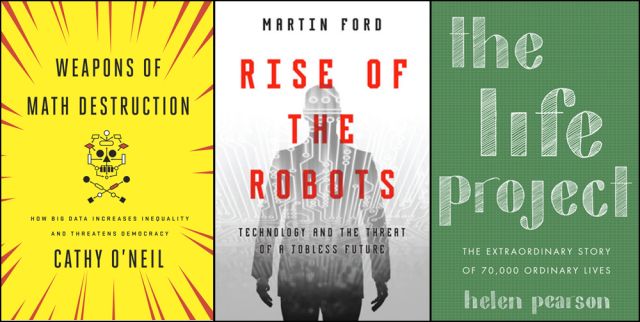2017 begins on Monday in Vancouver, Canada, and will explore the theme “The Future You.” If the future you is anything like the future us, you are likely curled up in a big cushy chair right now, devouring the contents of a book that flips your thinking. Below, some reading suggestions from the speaker program. Read, enjoy and stay tuned to the TED Blog for beat-by-beat coverage of the conference.
TED2017 begins on Monday in Vancouver, Canada, and will explore the theme “The Future You.” If the future you is anything like the future us, you are likely curled up in a big cushy chair right now, devouring the contents of a book that flips your thinking. Below, some reading suggestions from the speaker program. Read, enjoy and stay tuned to the TED Blog for beat-by-beat coverage of the conference.
Weapons of Math Destruction: How Big Data Increases Inequality and Threatens Democracy by Cathy O’Neil. The decisions that affect our lives are no longer made by humans — they’re made by algorithms. This might sound like a great way around bias and discrimination, but these things are often built right into our mathematical models. When it comes to college admissions, decisions on parole, applications to jobs and the affects of a bad credit score, O’Neil explores the unintended consequences of algorithms. (Read an excerpt.)
The Telomere Effect: A Revolutionary Approach to Living Younger, Healthier, Longer by Elizabeth Blackburn and Elissa Epel. Molecular biologist Elizabeth Blackburn received the Nobel Prize in Medicine for her discovery of telomeres, the ends of chromosomes that — like shoelace tips — keep our genetic information from fraying. Both telomeres and telomerase, an enzyme that restores worn-down telomeres, appear central to the aging process. This book looks at the research — then turns its attention to how our thoughts, bodies and social worlds affect us on the cellular level.
